
Brad Shoemaker is a senior editor at Giant Bomb. When he's not punishing himself with needlessly difficult video games or taking down cowboy scores, he takes care of his prized peegs. Sometimes he Tweets.
Well, 2015 was certainly an improvement over 2014, wasn't it? Now that it's all over and a few of the year's last, biggest releases weren't quite as exciting as I'd hoped, I'm not sure where to rank 2015 in the pantheon of Good Video Game Years. It was way better than most, but definitely not 1998 level. Maybe right behind 2007? At any rate, this was an exciting year when the new consoles finally started receiving a steady stream of releases that felt like they belonged on and really pushed the new hardware. There were some solid mouse-driven bangers on the PC, too, not to mention some unexpected, delightful stuff on handhelds and mobile. In 2015, video games were everywhere!
In contrast to last year--when I felt like I was scraping the barrel to come up with 10 games I felt good about putting on a year-end list at all--this year I had a hard time narrowing it down to 10 games. That's always a great feeling. And it makes me want to recognize a gang of honorable mentions that didn't quite squeak onto the list but still stand out in my mind as games I had a grand old time with. Lara Croft Go was a dazzling little adventure to discover on an airplane. Batman: Arkham Knight, despite a couple of flaws, was a hell of a good--and gorgeous--one of those games. I've been playing way more Star Wars Battlefront than I probably should, for reasons i don't fully understand. I'm very pleasantly surprised by the little I've seen of Assassin's Creed Syndicate so far and find myself shocked I actually want to play one of these games again. StarCraft II: Legacy of the Void was a fun, fan-servicey, ridiculous way to wrap up one of the most important series in games. And even as I'm writing this in my parents' living room on Christmas Eve, SteamWorld Heist has been doing its best to sneak its way into my top 10 at the last minute. That game rules, and this list could go on and on.
Anyway, those games are pretty great but didn't quite rate. I made a rhyme! Here's the list.
10. The Witcher 3: Wild Hunt
Credit to CD Projekt for convincing me--and a hell of a lot of other people, apparently--to finally play a Witcher game, the third in a series that's been so brooding, dense with lore, and vaguely impenetrable that I'd always watched other people obsess over it from afar without ever taking up the silver sword myself. Finally, here was the Witcher anyone could play. My first dozen hours with The Witcher 3 were filled with this wide-eyed glee at the sheer scale and yet the intricate detail of the game's world, and the intriguing stories, both grandiose and personal, that breathe life into that world. The Witcher III's writing and narrative design put most other big open RPGs to shame. We've said it before, but there are lone side quests here that are better written than many entire games.
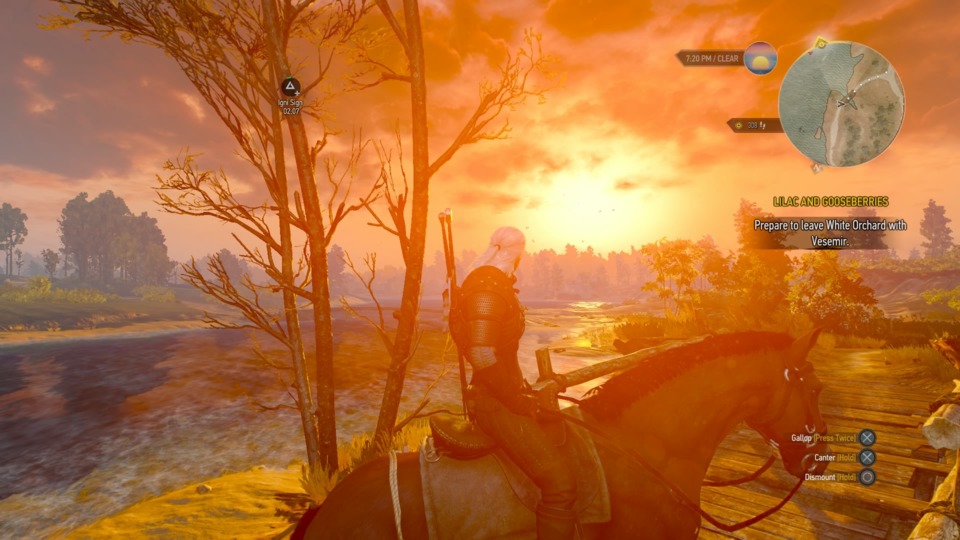
The next two dozen hours with Wild Hunt, as I uncovered the war-torn reality of life in Velen, were even more impressive than the first, as I dove into quests that explored the otherworldly sadism of the crones, the sad nature of the peasant revolt on Fyke Isle, and the tragic events that occurred around the Bloody Baron and his family. If only the mechanical parts of The Witcher 3 lived up to the brilliance of its world and narrative design. After nearly 50 hours, somewhere in the bowels of Novigrad, I finally started to burn out on the relatively simplistic combat, limiting skill system, and clunky inventory, and eventually put the game down and moved on. But I spent more time with this game than most of the other games on this list, and it was time very well spent. The Witcher III is ambitious as hell, and that it even comes close to fulfilling that ambition ensures it a most deserved place on this list. I'll be keeping a close eye on everything CD Projekt does from here on out.
9. Rocket League
When people started coming at me sometime last June, telling me I was going to love the new game from a studio whose last game was called Supersonic Acrobatic Rocket-Powered Battle-Cars, I pretty much smiled politely and thought "yeah, sure, whatever" to myself. But I doubt I'm alone; it doesn't seem like anyone could have predicted just how perfectly tuned, deeply satisfying, and utterly addictive Rocket League turned out to be, nor what an absolute phenomenon it became. Rocket League felt like the game of the summer, and deservedly so. It's one of those "easy to pick up, hard to master" sorts of games, with superbly responsive driving controls that make you feel like you can instantly start having fun with it, but with enough depth and nuance in its higher-level play that truly being able to compete requires an immense amount of commitment.
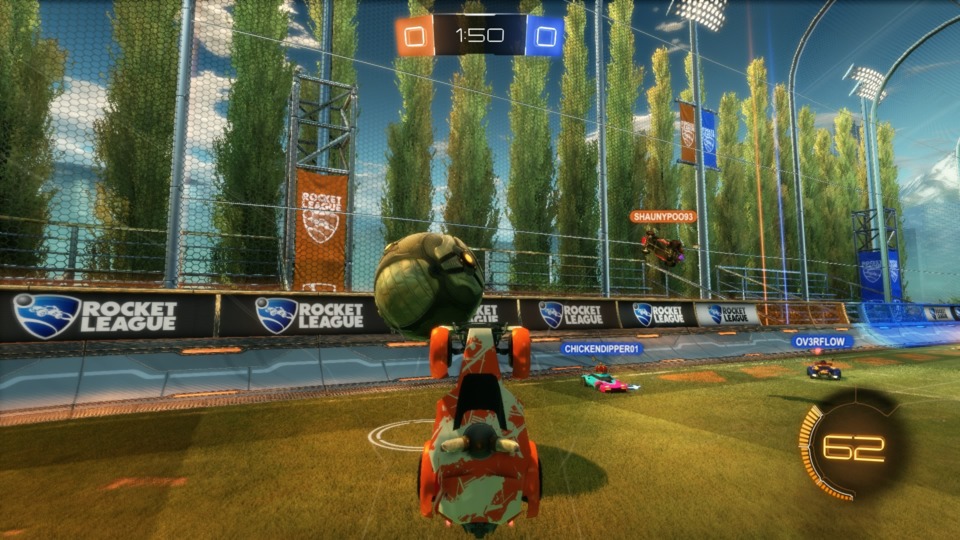
You really only have to score one goal in this game to be hooked, but the good news is that every goal after that is just as satisfying as the first one. I'd also like to say there's nothing like the first time you pull off a perfectly aimed boost jump and knock a bouncing ball straight into the goal...but truthfully I haven't managed to pull that off yet. But the game's extremely high skill ceiling is exactly why people will keep playing it for a long, long time. This became my go-to game to play in short bursts for weeks after release, and the way the developers have been supporting it with free maps and extra modes in the months after release makes it even more laudable. It's fair to say Rocket League was the breakout success story of the year, and I'm glad I got caught up in the zeitgeist along with seemingly everyone else who plays games.
8. Bloodborne
You know what sounded like a dream come true from the moment I heard about it? A new game in the mold of Dark Souls but with a dank Victorian otherworld subbed in for From Software's more traditional sword-and-sorcery milieu. And for the most part, Bloodborne lived up to the promise of that heady combination of form and setting. The crisscrossing levels are just as dense and intricate as anything I've seen in Souls, and the enemy encounters--especially the player-like hunters and those wonderfully grotesque bosses--are just as demanding. Rising to the challenge of slaughtering your way through all that stuff was incredibly taxing, and I found overcoming the game's challenges to be so gratifying that I did it to the tune of more than 80 hours and one hard-won platinum trophy.
What I remember the most when I think back on the dozens of hours I spent with Bloodborne was its unsettling transition from werewolf London, which was the tone everyone expected based on prerelease footage, to the more insidious creeping dread of the Lovecraftian cosmic horror the game embraced at the midpoint and beyond. Even if it wasn't all clear at first glance, and I had to end up on YouTube in an effort to tie the game's dangling, nebulous story threads together, I came to have a tremendous amount of respect for the layers and complexity of the horrendous reality that From envisioned for this game, and the way it tied world design, boss encounters, and even mechanics like insight all together in the service of a common goal. Also, transforming weapons. Those were cool. I still need to finish that DLC.
7. SOMA
SOMA feels like it fits right in with the science-fiction renaissance that's been going on in the movies over the last few years, with stuff like Interstellar, District 9, and Moon. It's the kind of thoughtful sci-fi that posits a futuristic premise--in this case, the ability to save a human consciousness and replicate it digitally--and then plays around within that framework to address questions about the human condition. SOMA is remarkably thorough in presenting its themes about the duality of mind and body, and the nature of consciousness. Every aspect of the game serves the purpose of expanding on these themes, with computer logs, world exploration, puzzle design, and the framing of your perspective all contributing to a story that culminates in a single moment which encapsulates everything the game has said and done up to that point. The whole thing is marvelously executed.
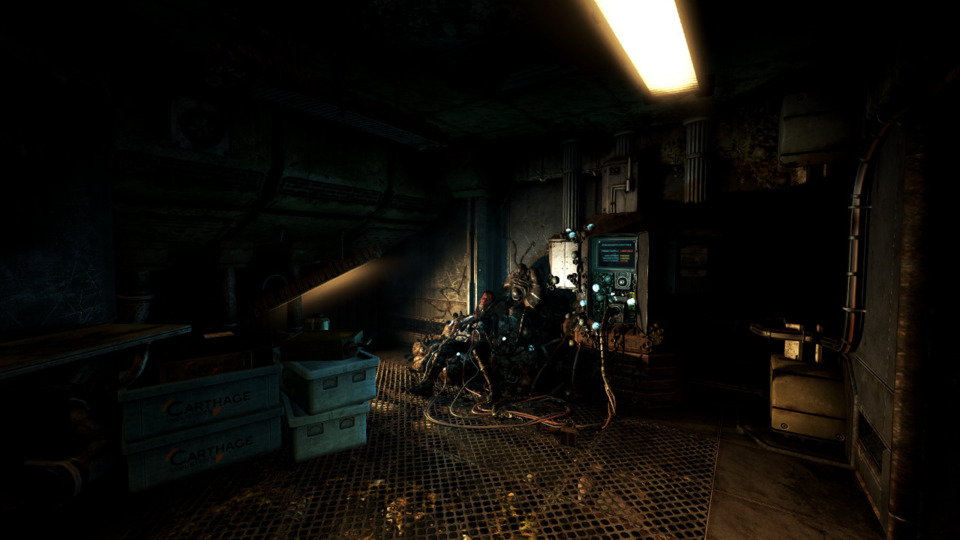
I love the world SOMA creates, the questions it asks, its art design and atmosphere, even manipulating the technology its world contains. What I don't love are the enemy encounters, the spots where presumably Frictional remembered they were "the Amnesia people" and felt they had to include some restrictive stealth sequences so they could fit neatly into the horror category. Maybe I shouldn't guess at their design intent, but in any case the enemies are oppressive in a bad way, in the sense that many of them prevent you from discovering more about Soma's fascinating world, and they just aren't much fun to deal with in general. If the video-gamey parts were better, this game would be right near (maybe at?) the top of my list. That's how much I like what this game does right, and it's a credit to those superb aspects that even after several moments of intense frustration, SOMA still ranks as one of my favorite games of the year.
6. Rise of the Tomb Raider
Crystal Dynamics' previous Tomb Raider reboot was a game I admired but didn't love. In other words, I thought it was quite successful at what it was trying to do, even if what it was trying to do wasn't exactly what I personally wanted out of a new Tomb Raider. Turns out, their follow-up is just about exactly what I wanted out of a new Tomb Raider, with a grander sense of exploration and adventure, a better mix of tombs and side activities that relaxes the first game's focus on shootouts, and a bunch of new options that aren't just "aim for headshots" when you do get into combat. The game mixes all these elements up and serves them to you in the sort of gameplay smorgasbord that was perfectly tailored to my short attention span.
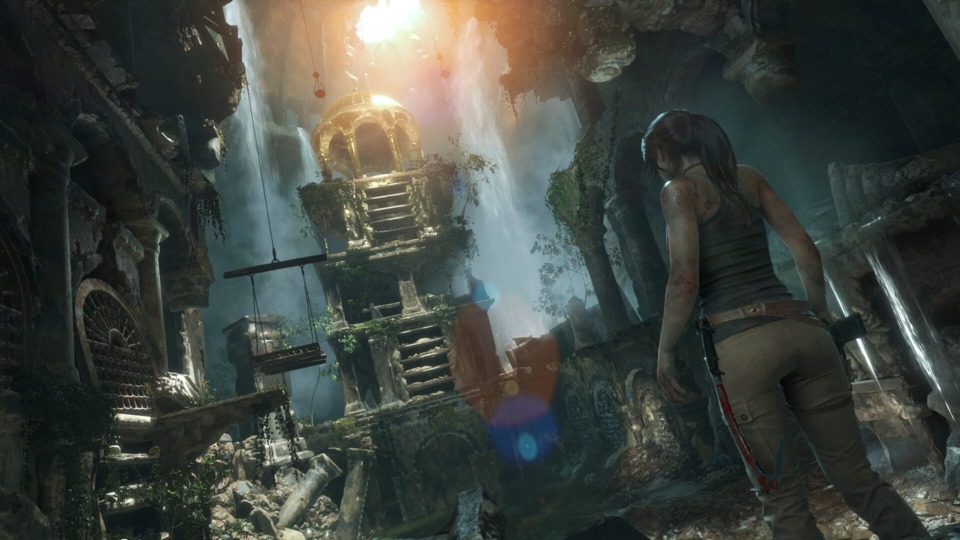
I also, dare I say it, kind of enjoyed the storyline in this game. It's all pretty derivative stuff, with a mystical MacGuffin, a paramilitary cult, and a group of wise but primitive natives in play, but it's all executed with enough skill that it's easy to get swept up in the drama and get kind of invested in Lara's newest adventure, especially for a couple of the more unexpected and momentous plot beats. Also, the poor benighted Xbox One hardware pumps out some spellbindingly gorgeous, exotic environments in this game, enough that Rise stands out in my mind as one of the best-looking games since this round of consoles hit the market two years ago. If you passed this game up on the Xbox for one reason or another, don't dismiss it when it hits the other platforms next year. It's a visual tour de force and a great game all around.
5. Ori and the Blind Forest
Remember a few years ago, when everyone was still saying "How come nobody makes games like Super Metroid anymore?" Then Shadow Complex came out. Now there are so many new games in this particular genre releasing on a steady basis, they don't all feel the need to pay obvious homage to Metroid's vaunted formula. Even as more and more games of this type flex their creativity and put their own spin on the traditional form of the Metroidvania, Ori and the Blind Forest stands above the crowd as a real triumph. Of course, any discussion of this game's success has to start with its most obvious aspect: the vibrance, range, and sheer inventiveness of its painterly visual presentation. The game works with scale, layering, and color to create a world that's unparalleled in its richness and beauty. Ori is simply one of the most gorgeous 2D-animated games I've played.
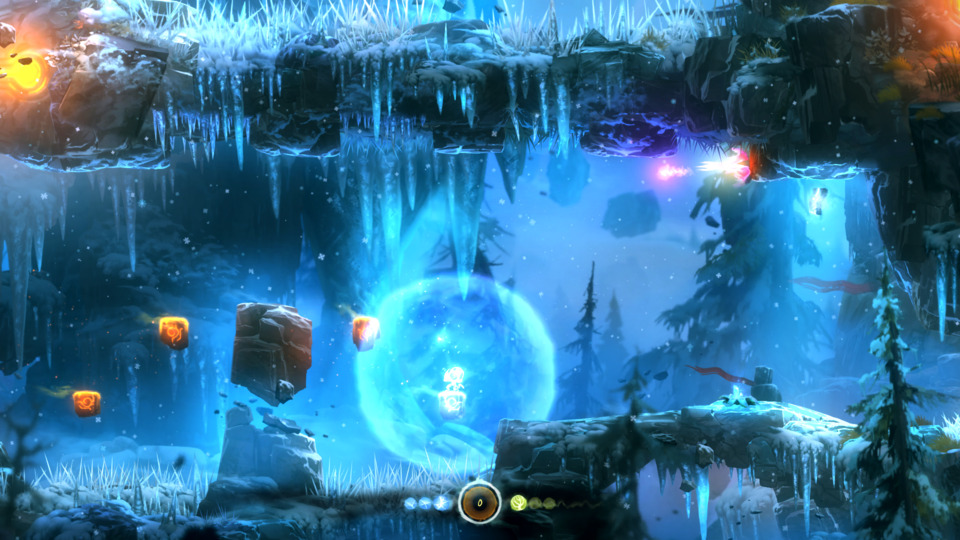
But the game's beauty isn't just skin-deep. My admiration of this game didn't take on its full shape till I got deep into the challenge of its complex, extended platforming sequences. There's more than a little masocore in the way the game makes you chain together wall jumps through intricate sequences of traps, and dance nimbly around multiple enemies and projectiles that come at you from all sides. The intense demands of the game's action are a great contrast to its lush, movie-like visuals. It's also worth noting that while the game starts off with what seems like it could be a cheap tug at the heartstrings, Ori actually crafts with few words a touching story of love and sacrifice that doesn't rely on one-dimensional stereotypes. Even the villain, though misunderstood, is sympathetic and noble in purpose. Taking only a couple of structural and technical problems into consideration, Ori almost--almost!--perfectly fulfills the huge ambitions of its developers. It's damn close to something I'd be comfortable calling a masterpiece.
4. Grow Home
It's a fun irony that Ubisoft, perhaps the one company most derided for making open-world games in which you climb things to advance, put out an open-world game in which you climb things to advance that happened to feel like one of the freshest, most innovative games of the year. That's because Grow Home revolves around a single, superbly executed mechanic: the ability to place one hand in front of the other and grip or climb on any object or surface in the entire game. Within seconds of beginning the game, you start getting a hands-on, tactile feel for the controls and immediately feel yourself getting better and better at navigating cliff faces, overhangs, and the game's other fanciful terrain. Missing a jump or slipping from a ledge is sometimes more fun than climbing successfully, since failure just gives you the chance to pull off all kinds of desperate one-handed saves that let you narrowly avoid plummeting thousands of feet down to the ground.
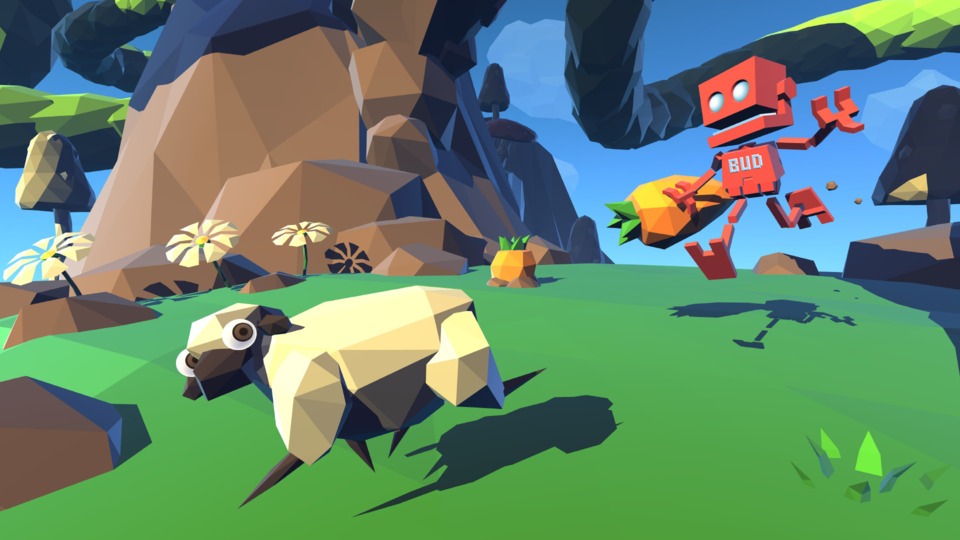
Grow Home's simple charm is as endearing as its controls are satisfying. Your goofy little drunken robot B.U.D. gives off a ton of personality with his buzzy chirps and loopy, stumbling gait, and the way he flops around when you miss a jump really lessens the annoyance of, you know, missing a jump. I also found Grow Home to be just about the perfect length; you could "finish" it in two or three hours, and collect everything in five or six, and the game doles out nice little mobility enhancements (better gliding, a jetpack) as you go, which helps ease your traversal around the small but vibrant world. Grow Home is an immensely likable, mechanically interesting platformer that debuted on the cheap and really surprised me, becoming one of my favorite games of the year in the process. Play it on a Saturday morning and feel like a kid again.
3. Dying Light
Despite my best efforts, it's clear at this point zombies aren't going anywhere. If we're going to be stuck incessantly mowing our way through endless undead hordes for the foreseeable future, at least developers like Techland are bringing some interesting new elements to the fray. Dying Light seemed like it was going to be an improved version of Dead Island, but instead it defied expectations by dropping that game's defining feature--the analog-stick-controlled melee combat--and replacing it with superbly designed, easily accessible first-person parkour that gave you a distinct tactical advantage as you vaulted over the hordes and on top of the game's expertly designed multilevel city. It's also worth noting that Dying Light could have filled its urban playground with predictable, repeatable content like radio towers to climb and other generic content, but it outdoes most open-world games with a ton of meaningful side missions that give you unique, interesting tasks, and also fill in bits and pieces of what life is like in a quarantined zombie hellhole.
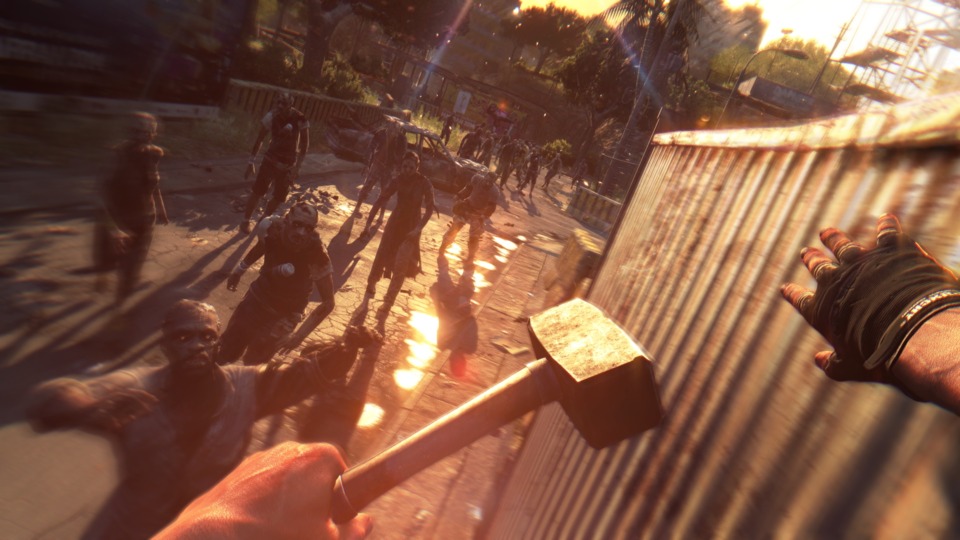
That ties into the other thing I really like about Dying Light, its grounded sense of place. The game goes to a lot of effort, especially through the side missions and peripheral content, of building Harran up as a really grim city to be trapped in, where you feel like you're narrowly scraping by, just barely getting your hands on the resources you and your allies need to stay alive. You run into NPCs (many of them nameless) from all walks of life, and you see the undead horror through the eyes of tourists, emergency workers, the city's indigenous lower class, and other characters that make the city really feel lived-in. True to its name, Dying Light also features the most interesting day/night cycle I've ever seen in an open-world game, with a nighttime phase that's so truly pitch black, you actually can't see where you're going, and with extra-vicious nighttime enemies that will really rip you apart if they catch you. It's enough to make you scramble for a safe house every time that call goes out on the radio at dusk, and it feels just as urgent on the fiftieth night as it did on the first.
2. Destiny: The Taken King
Yeah, of course the one guy on staff who actually liked Destiny in its troubled first year was going to go nuts over the game and its biggest, best expansion in year two, when Destiny actually became good. But let's not discount exactly how much better The Taken King really is than everything in Destiny before it. Finally the content in this expansion started to give you the impression of what Bungie actually wants to do with Destiny, and of what the game could ultimately become. Story missions have actual, you know, story in them. Strikes offer much more elaborate encounters and take on the teamwork mechanics of the raids. The new raid itself is the best one yet (too bad there's only one, though). And even when all the core content is finished, you still have a ton of other quests with meaningful story and valuable rewards attached to them, and a drip feed of unique weapons and challenges centered around timed missions that's kept the player base energized.
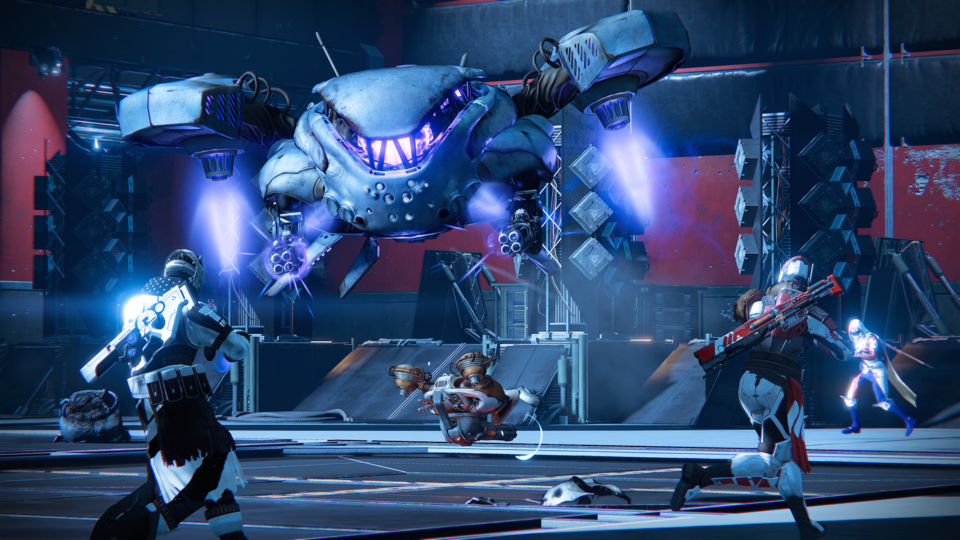
I could keep going. The upgrade system is fun to use! The characters are memorable! The loot flows like wine! There were so many individual improvements added to Destiny in September that it's hard to list them all, but they all added up to such a vastly improved experience that I basically never wanted to stop playing it...but alas, the content was bound to run out eventually. Of course, by now Bungie has confirmed that it's scrapped plans for further paid Destiny DLC for the foreseeable future, presumably while they finish a proper sequel, and the live events and minor exotic-weapon quests that have been rolling out in their place haven't been much comfort in the face of what looks like a long, agonizing content drought. But it's hard to complain about the 100 feverish hours I got out of The Taken King, and to be honest it was really nice to play that much Destiny and actually feel good about doing it. Bring on Destiny 2.
1. Metal Gear Solid V: The Phantom Pain
If you'd asked me anytime during the first 89 or so of the hours I put into Metal Gear Solid V whether it would be my favorite game of 2015, my answer would have been an unqualified, emphatic yes. Starting from about the last hour--which fails to conclude this otherwise brilliant game in anything resembling a satisfying way, and in fact rests on a cheap twist that retroactively makes the whole thing worse--and stretching for weeks afterward as Konami worsened the experience of playing MGSV with questionable changes to the on- and offline modes of the game, that question got muddier. But peel back the problematic layers of MGSV and the fact remains: the fluid, improvisational, exciting stealth action at the heart of Metal Gear Solid V is just plain one of the best things I've ever played.
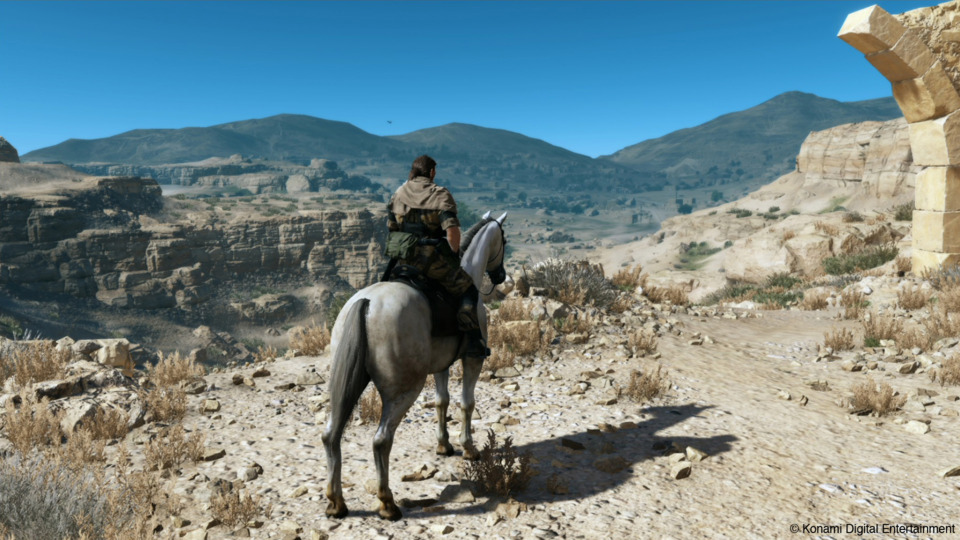
With perfectly tuned controls and a frame rate that keeps up with them, this game feels so good to play. And there's just so much variety, depth, and freedom to experiment in The Phantom Pain that I never got tired of trying out new stealth tricks (or repeating the old tricks) in those 90-ish hours, and I would've played it for another 90, if the content and story hadn't run out. There feels like a nearly limitless amount of freedom to experiment with your enormous toolbox, whether you want to go loud, be a super spy, or toss out a wisecracking balloon effigy of yourself to confuse everyone around you. The time I did that into the middle of a tense meeting between arms dealers or mercs or whatever, after I'd been silently tailing them for 15 minutes, was probably the moment I realized The Phantom Pain is one of my favorite games ever. I still can't believe I'm saying that about a Metal Gear game. Warts and all, this is still the most excited I got about any game this year, and even if I despised the ending, well... I haven't had that strong a reaction to a video game since the last time a Metal Gear game made me feel that way. It's not everything it could have been, but it's a hell of a way for Kojima to depart the series that made him famous, and it's the most fun and impressive game I played in 2015.